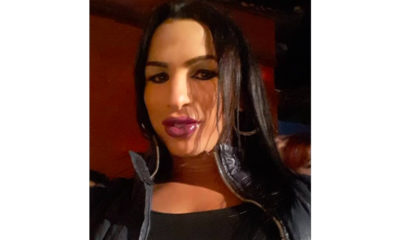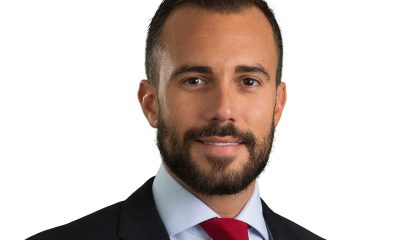Caribbean
Cuban president meets with LGBTQ activists in Havana
Havana gathering took place months after anti-government protests
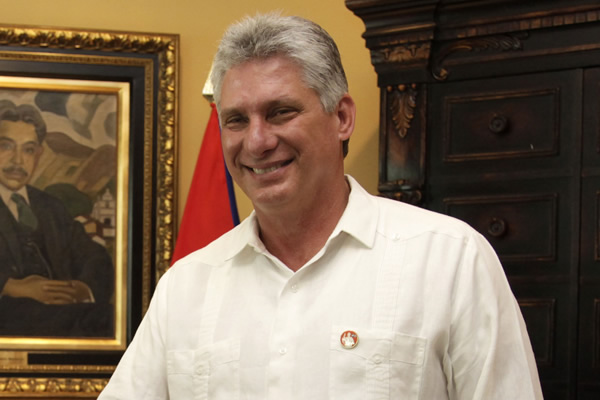
HAVANA — Cuban President Miguel Díaz-Canel on Friday met with more than a dozen LGBTQ activists.
Tremenda Nota, the Los Angeles Blade’s media partner in Cuba, reported the meeting took place at Havana’s Palace of the Revolution. Francisco Rodríguez Cruz, a gay man living with HIV who writes under the pen name Paquito el de Cuba, and Malú Cano, coordinator of Transcuba, a transgender organization that is affiliated with the National Center for Sexual Education (CENESEX), are among those who participated.
“I see it as a political will to advance the recognition of the rights of LGBTIQ+ people, an outstanding debt that the revolution has always had with us,” Cano told Tremenda Nota.
The Cuban government tweeted pictures of of the meeting. Rodríguez in a blog post notes CENESEX Director Mariela Castro, the daughter of former President Raúl Castro, was sitting next to Díaz-Canel.
#AHORA: Presidente @DiazCanelB recibe en el Palacio de la Revolución a representantes de la comunidad #LGBTI.
“Gracias por aceptar esta invitación”, les dice, y los convida al diálogo para “construir entre todos el país que queremos y perfeccionar el Socialismo”. pic.twitter.com/D9FQzVw6r9— Presidencia Cuba (@PresidenciaCuba) October 8, 2021
Former President Fidel Castro, who was Mariela Castro’s uncle, in the years after the 1959 revolution that brought him to power sent gay men and others to work camps known by the Spanish acronym UMAP. The Cuban government until 1993 forcibly quarantined people with AIDS in state-run sanitaria.
Mariela Castro and Díaz-Canel both publicly support marriage rights for same-sex couples. Friday’s meeting took place less than a month after Cuba’s Justice Ministry released a draft of a proposed new family code that would allow gays and lesbians to tie the knot.
Yoan de la Cruz, a gay man from San Antonio de los Baños in Artemisa province who live-streamed the first of a series of anti-government protests that took place across Cuba on July 11, and hundreds of others who participated in the demonstrations remain in custody.
14ymedio, an independent website founded by Yoani Sánchez, a prominent critic of the Cuban government, earlier this week reported the country’s attorney general is seeking an 8-year prison sentence for De La Cruz. 14ymedio also notes Cuban authorities continue to hold De La Cruz “somewhat incommunicado” in a prison east of Havana.
Cuba
Transgender woman who protested against Cuban government released from prison
Brenda Díaz among hundreds arrested after July 11, 2021, demonstrations
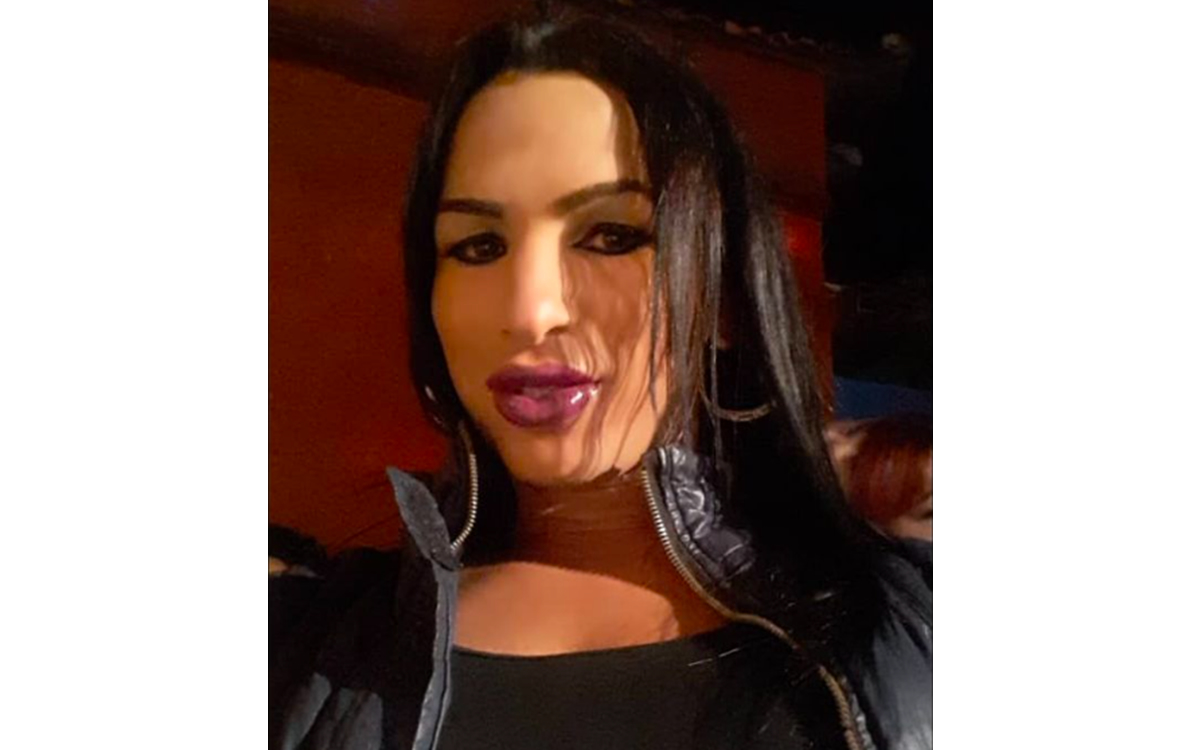
A transgender woman with HIV who participated in an anti-government protest in Cuba in 2021 has been released from prison.
Luz Escobar, an independent Cuban journalist who lives in Madrid, on Saturday posted a picture of Brenda Díaz and her mother on her Facebook page.
“Brenda Díaz, a Cuban political prisoner from July 11, was released a few hours ago,” wrote Escobar.
Authorities arrested Díaz in Güira de Melena in Artemisa province after she participated in an anti-government protest on July 11, 2021. She is one of the hundreds of people who authorities took into custody during and after the demonstrations.
A Havana court in 2022 sentenced Díaz to 14 years in prison. She appealed her sentence, but Cuba’s People’s Supreme Court upheld it.
Escobar in her Facebook post said authorities “forced” Díaz to “be in a men’s prison, one of the tortures she suffered.” Mariela Castro, the daughter of former Cuban President Raúl Castro who directs the country’s National Center for Sexual Education, dismissed reports that Díaz suffered mistreatment in prison. A source in Cuba who spoke with the Washington Blade on Saturday said Díaz was held in a prison for people with HIV.
The Cuban government earlier this week began to release prisoners after President Joe Biden said the U.S. would move to lift its designation that the country is a state sponsor of terrorism. The Vatican helped facilitate the deal.
U.S. Sen. Marco Rubio (R-Fla.), who is Cuban American, on Wednesday criticized the deal during his confirmation hearing to become the next secretary of state. President-elect Donald Trump, whose first administration made the terrorism designation in January 2021, will take office on Monday.
Caribbean
Dutch Supreme Court rules Aruba, Curaçao must allow same-sex couples to marry
Ruling likely also applicable to St. Maarten
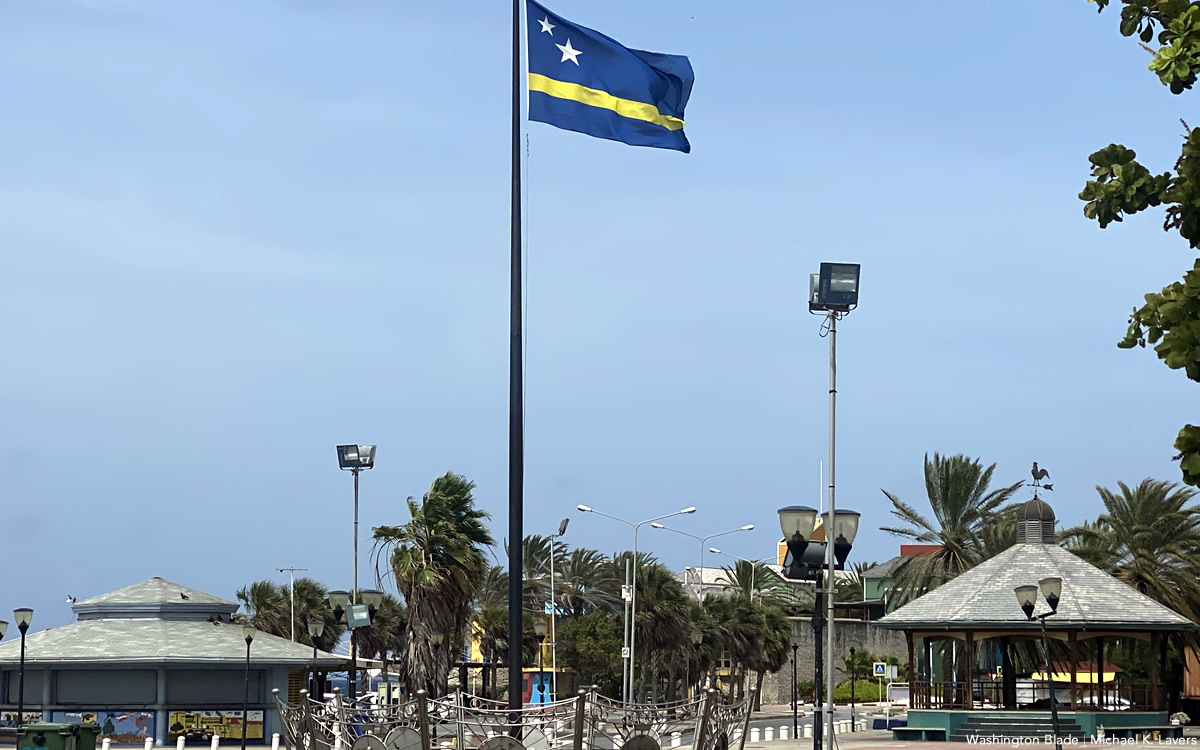
The Dutch Supreme Court on Friday ruled Aruba and Curaçao must extend marriage rights to same-sex couples.
The Joint Court of Justice of Aruba, Curaçao, St. Maarten and of Bonaire, St. Eustatius, and Saba in 2022 ruled in favor of marriage equality in two cases that Fundacion Orguyo Aruba and Human Rights Caribbean in Curaçao filed.
The governments of the two islands appealed the ruling.
The Joint Court of Justice of Aruba, Curaçao, St. Maarten and of Bonaire, St. Eustatius, and Saba has jurisdiction over Aruba, Curaçao, and St. Maarten —three constituent countries within the Netherlands — and Bonaire, St. Eustatius, and Saba — which are special municipalities within the kingdom.
Same-sex couples have been able to legally marry and adopt children in Bonaire, St. Eustatius, and Saba since 2012.
Aruba, Curaçao, and St. Maarten must recognize same-sex marriages from the Netherlands, Bonaire, St. Eustatius, and Saba. Aruba’s registered partnership law took effect in 2021.
“Today, we celebrate a historic victory for the dignity and rights of LGBT individuals in Curaçao and Aruba,” said Human Rights Caribbean President Janice Tjon Sien Kie on Friday in a statement.
Aruban Sen. Miguel Mansur, who is gay, on Friday described the ruling to the Washington Blade as “an amazing victory which applies to Aruba, Curaçao, and by implication St. Maarten.”
“Aruba progresses into a society with less discrimination, more tolerance, and acceptance,” he said.
Melissa Gumbs, a lesbian St. Maarten MP, told the Blade the ruling “could very well have some bearing on our situation here.”
“I’m definitely looking into it,” she said. “We’re researching it to see what is the possibility, and also in touch with our friends in Aruba who are, of course, overjoyed with this ruling.”
Cuba, Puerto Rico, the U.S. Virgin Islands, St. Martin, St. Barts, Martinique, and Guadeloupe, are the other jurisdictions in the Caribbean in which same-sex couples can legally marry.
Mansur said the first same-sex marriages in Aruba will happen “very soon.”
“There are two couples ready to wed,” he told the Blade.
Caribbean
Black transgender woman from Chicago disappears in the Bahamas
Taylor Casey last seen on June 19 on Paradise Island
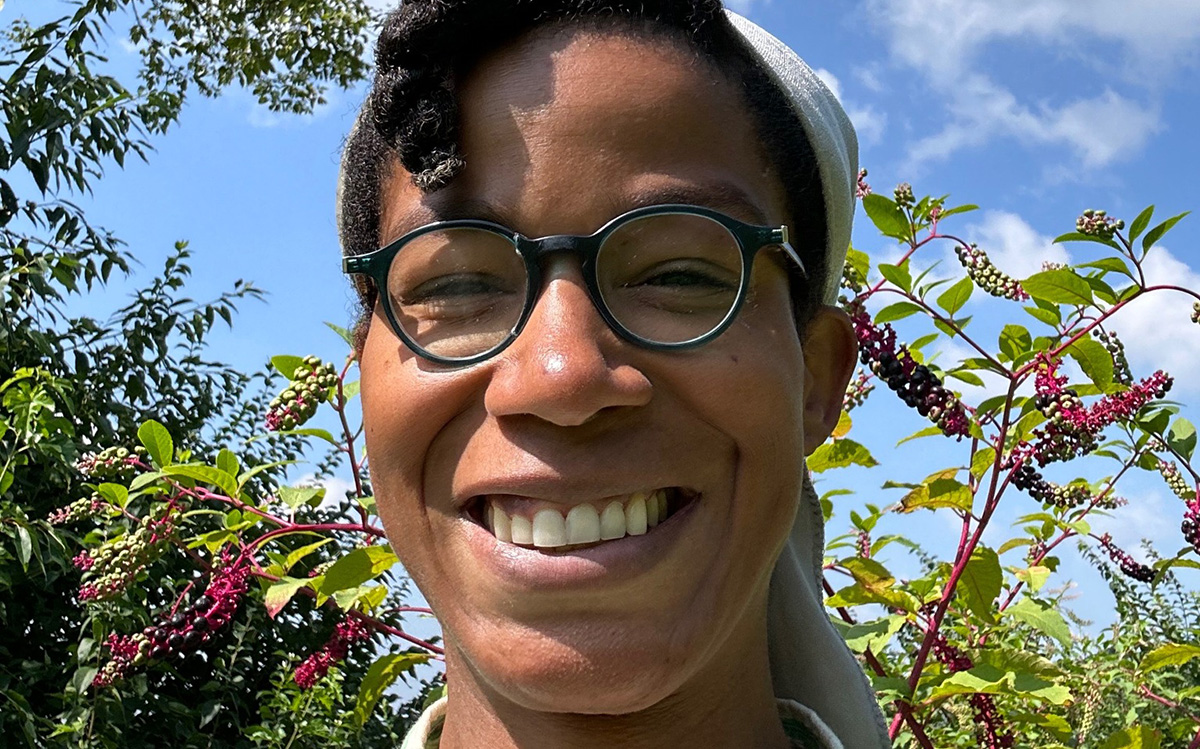
A Black transgender woman from Chicago disappeared last month while attending a yoga retreat in the Bahamas.
A flyer the Royal Bahamas Police Force has distributed says Taylor Casey, 42, was last seen on June 19 on Paradise Island, which is adjacent to Nassau, the country’s capital.
Casey’s family in a press release said employees at the Sivanandra Ashram Yoga Retreat she was attending reported her missing on June 20 “when she failed to attend that day’s classes.”
Casey’s mother, Colette Seymore, traveled to Paradise Island after her daughter disappeared.
The press release, which advocates in Chicago released ahead of a press conference on Thursday, notes “a search of the area and conversations with the Bahamian authorities left Ms. Colette Seymore with more questions than answers.”
Thursday is Casey’s 42nd birthday.
Seymore is among those who spoke at Thursday’s press conference.
“My child has been missing for almost three weeks,” said Seymore in the press release. “My family, friends, and I are distraught! I am pleading with everyone to call your elected officials and demand the FBI lead this investigation and bring her home safe and sound.”
The Windy City Times described Casey as “a fixture of Chicago’s transgender community and a beloved youth advocate.” Casey has also practiced yoga for 15 years, and went to the retreat “as part of a long-term goal to deepen her yoga practice.”
“She was excited to be participating in the yoga teacher training program and looking forward to sharing her experience with others when she returned,” noted a second press advisory her family released this week.
The Nassau Guardian, a Bahamian newspaper, on June 27 reported authorities found Casey’s cell phone in the ocean, but her other belongings were still in her room at the retreat.
A spokesperson for Taylor’s family told the Washington Blade they have reached out to the State Department and the U.S. Embassy in the Bahamas for assistance. Eyewitness News Bahamas, a Bahamian newscast, on June 28 reported the Federal Bureau of Investigation is working with Bahamian authorities to investigate Taylor’s disappearance.
The Bahamas Organization of LGBTI Affairs has also offered its support to Taylor’s family and assistance to authorities.
“There is still hope,” Alexus D’Marco, the group’s executive director, told Eyewitness News Bahamas. “They’re just looking for that piece of hope and to have some closure to finding their loved one.”
D’Marco also called for Bahamian authorities to do more to investigate missing persons’ cases in the country.
“A human being is missing, and that is the whole thing about this,” she told Eyewitness News Bahamas. “Regardless of her gender identity, being identified as a trans person, she’s still a human being and she’s still a visitor to our shores.”
Caribbean
Dominica High Court of Justice decriminalizes homosexuality
Gay man challenged statute in 2019

ROSEAU, Dominica — Dominica’s High Court of Justice on Monday struck down provisions of a law that criminalized consensual same-sex sexual relations.
A gay man who remains anonymous in 2019 challenged sections of the country’s Sexual Offenses Act that criminalized anal sex and “gross indecency” with up to 10 years and 12 years in prison respectively. The plaintiff argued the provisions violated his constitutional rights.
The Dominica Equality and Sexual Expression Association and the Eastern Caribbean Alliance for Diversity and Equality, a group that advocates for LGBTQ+ and intersex rights in the region, in a press release noted the court in its ruling affirmed “the criminalization of consensual same-sex activity between adults is unconstitutional.” The groups added Justice Kimberly Cenac-Phulgence “declared that the laws commonly known as buggery and gross indecency laws, contravenes the constitution of the Commonwealth of Dominica, namely the right to liberty, freedom of expression, and protection of personal privacy.”
“It is long past time that the dignity and dreams of all Dominicans were recognized,” said DESEA Executive Director Sylvester Jno Baptiste in the press release. “We are all God’s children, and he loves us all equally. Laws that treat some Dominicans as less than others, have no place in a just society.”
Dominica is a former British colony that is located between Guadeloupe and Martinique in the Lesser Antilles.
Antigua and Barbuda, St. Kitts and Nevis, Barbados, and Trinidad and Tobago in recent years have decriminalized consensual same-sex sexual relations.
The Inter-American Commission on Human Rights in 2021 issued a decision that said Jamaica must repeal its colonial-era sodomy law. The country’s Supreme Court last year ruled against a gay man who challenged it.
A judge on St. Vincent and the Grenadines’s top court in February dismissed two cases that challenged the country’s sodomy laws.
“Decriminalization helps create an environment where LGBTQ individuals can live openly without fear of persecution, enabling them to access health care, education, and employment without facing discrimination,” said Outright Executive Director Maria Sjödin on Monday in response to the Dominica ruling. “The repeal of these discriminatory laws is a testament to the tireless efforts of activists, advocates, and allies who have long fought for justice and equality. It is a victory for human rights and a significant milestone in the ongoing struggle for LGBTQ rights in the Caribbean.”
Caribbean
Gay couple seeks recognition of Fla. marriage in Turks and Caicos
Tim Haymon denied spousal exemption under territory’s immigration law
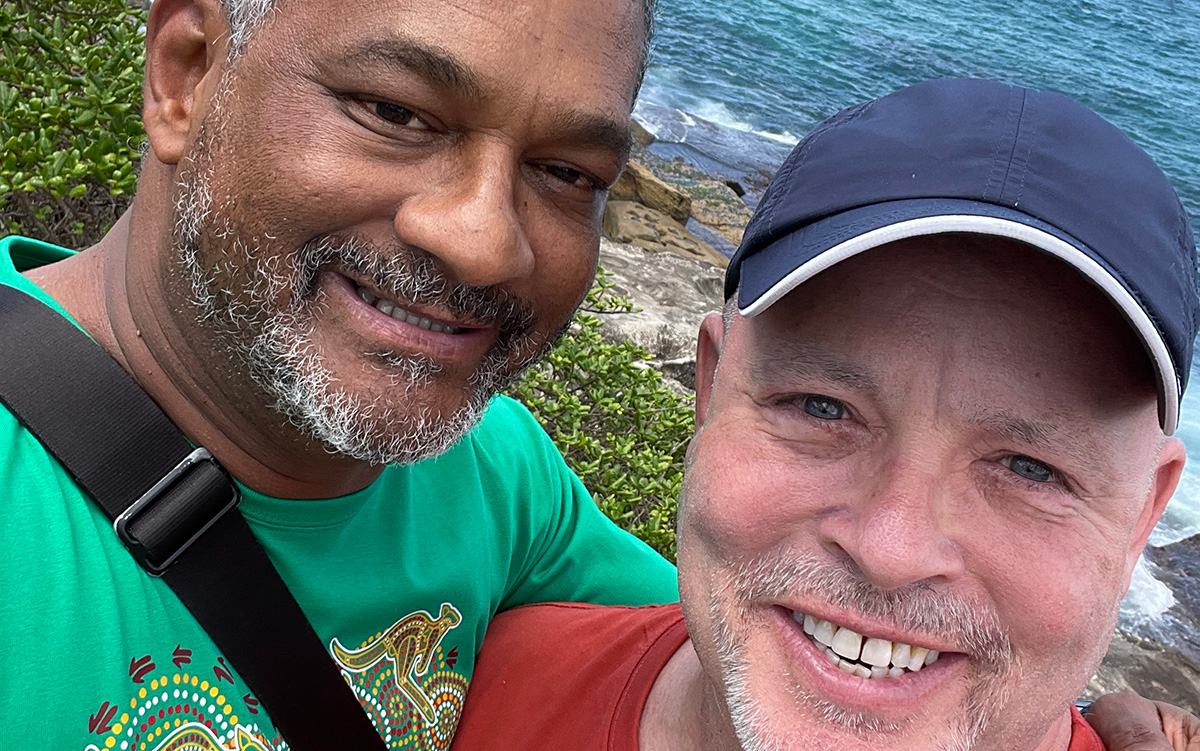
PROVIDENCIALES, Turks and Caicos — A same-sex couple has filed a lawsuit against the Turks and Caicos Islands’ government after it refused to legally recognize their marriage.
Richard Sankar, a realtor who has lived in the British territory for 27 years and is a Turks and Caicos citizen, married Tim Haymon in Fort Lauderdale, Fla., in 2020.
Haymon, who is American, in August 2021 applied for a spousal exemption under the Turks and Caicos’ immigration law on the basis of his status as a spouse that would have allowed him to legally live and work in the territory. The Turks and Caicos’ Director of Immigration denied the application because its definition of marriage used does not include same-sex couples. Haymon and Sankar filed their lawsuit in October 2021.
Stanbrook Prudhoe, a law firm in the Turks and Caicos, represents Haymon and Sankar.
The trial court, which is also known as the Supreme Court, heard the case in November 2022.
The court on March 1 said the work permit exemption refusal violates the Turks and Caicos’ constitution that bans discrimination based on sexual orientation. It has yet to release the ruling itself.
“I am suing for the right to recognize our marriage,” Haymon told the Washington Blade on March 2 during a Zoom interview from Sydney where he and Sankar were on vacation. “Just like any other spouse coming to the Turks and Caicos Islands and marrying a Turks and Caicos islander, we’re just wanting the same rights.”
The Turks and Caicos are a group of islands that are located roughly 650 miles southeast of Miami.
Consensual same-sex sexual relations have been decriminalized in the British territory since 2001. The constitution states “every unmarried man and woman of marriageable age (as determined by or under any law) has the right to marry a person of the opposite sex and found a family.”
Then-Cayman Islands Grand Court Chief Justice Anthony Smellie in 2019 ruled same-sex couples can legally marry in the Cayman Islands. The Caymanian Court of Appeal later overturned the decision, and the British territory’s Civil Partnership Law took effect in 2020.
Then-Bermuda Supreme Court Justice Charles-Etta Simmons in 2017 issued a ruling that paved the way for gays and lesbians to legally marry in the British territory. The Domestic Partnership Act — a law then-Gov. John Rankin signed that allows same-sex couples to enter into domestic partnerships as opposed to get married — took effect in 2018.
Bermuda’s top court later found the Domestic Partnership Act unconstitutional. The Privy Council, a British territories appellate court in London, upheld the law. It also ruled same-sex couples do not have the constitutional right to marry in the Cayman Islands.
Haymon and Sankar told the Blade they expect the Privy Council will eventually hear their case.
“We are prepared for that,” said Sankar. “Our attorneys are prepared for that.”
Haymon added he hopes their lawsuit will inspire other same-sex couples in the Turks and Caicos to fight for legal recognition of their relationships.
“We hope that one of the locals will now take up the flag and say I want to marry my partner,” he said.
Same-sex couples can legally marry in Cuba, Puerto Rico, the U.S. Virgin Islands, Saba, St. Martin, St. Barts, St. Eustatius, Guadeloupe, Martinique and Bonaire.
The Joint Court of Justice of Aruba, Curaçao, Sint Maarten and of Bonaire, Sint Eustatius and Saba in 2022 ruled Aruba and Curaçao, which are constituent countries within the Netherlands, must allow same-sex couples to legally marry.
Aruban lawmakers are currently considering a marriage equality bill. The Dutch Supreme Court in the coming months is expected to rule on the Aruba and Curaçao case.
Caribbean
Challenges to St. Vincent and the Grenadines’ sodomy laws dismissed
‘Freedom and equality is worth fighting for’
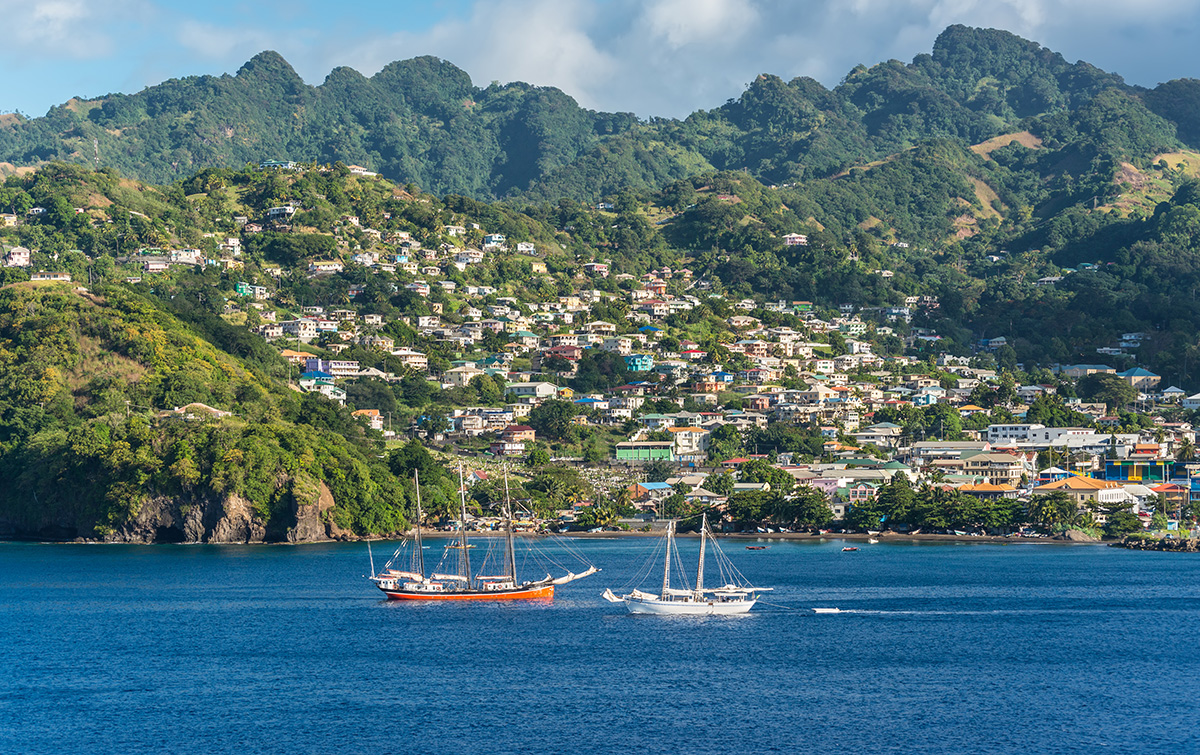
KINGSTOWN, St. Vincent and the Grenadines — A judge on St. Vincent and the Grenadines’ top court on Friday dismissed two cases that challenged the country’s sodomy laws.
Two gay men from St. Vincent, the country’s main island, in 2019 challenged laws that criminalize consensual same-sex sexual relations. High Court Justice Esco Lorene Henry on Friday dismissed the two cases.
Sean Macleish, one of the two plaintiffs who lives in the U.S., expressed disappointment in the decision.
“I am disappointed with the judge’s ruling and will be discussing our options with my legal team because freedom and equality is worth fighting for,” Macleish told the Washington Blade on Friday in an email.
Jeshua Bardoo, a lawyer who founded Equal Rights, Access and Opportunities SVG, a Vincentian advocacy group, said Friday is a “sad day for LGBTQ+ rights in St. Vincent and the Grenadines.”
“Internationally and regionally, laws similar to those challenged in these cases have been declared unconstitutional and in violation of the rights of LGBTQ+ persons,” said Bardoo in a press release the Eastern Caribbean Alliance, a regional LGBTQ+ rights group, issued. “These archaic and draconian colonial laws, though not strictly enforced, symbolically denigrate LGBTQ+ persons as second-class citizens in their own country and perpetuate prejudice and stigma against them.”
Outright International Executive Director Maria Sjödin also criticized the ruling.
“The rejection of the bid to decriminalize same-sex conduct in St. Vincent and the Grenadines is a huge disappointment and significant setback for LGBTQ rights in the country,” said Sjödin. “We urge the government to reconsider its position and take meaningful steps towards ensuring the full protection and dignity of all citizens, regardless of their sexual orientation or gender identity.”
Antigua and Barbuda, St. Kitts and Nevis, Barbados and Trinidad and Tobago in recent years have decriminalized consensual same-sex sexual relations.
The Inter-American Commission on Human Rights in 2021 ruled Jamaica must repeal its colonial-era sodomy law. The country’s Supreme Court last year ruled against a gay man who challenged it.

KINGSTON, Jamaica — The Jamaican Supreme Court on Friday ruled against a gay man who challenged the country’s colonial-era sodomy law.
Maurice Tomlinson, an activist from Montego Bay who now lives in Canada with his husband, in the lawsuit he filed in November 2015 notes the statute violates the right to privacy and other provisions of the Jamaican constitution. He also argues the sodomy law violates “the right to protection from inhuman or degrading punishment or other treatment.”
The Jamaica Coalition for a Healthy Society, the Lawyers’ Christian Fellowship, Hear the Children’s Cry and a group to which the ruling refers as “The Churches” defended the law. Tomlinson on Friday told the Washington Blade that all four of these entities “have American affiliates.”
“Thankful for the privilege of living in a country where my love isn’t illegal,” wrote Tomlinson on his Facebook page.
Jamaica is among the dozens of countries in which consensual same-sex sexual relations remain criminalized.
Antigua and Barbuda, St. Kitts and Nevis, Barbados and Singapore last year decriminalized homosexuality.
The Mauritius Supreme Court earlier this month issued a ruling that struck down the country’s colonial-era sodomy law. Courts in Belize and Trinidad and Tobago in recent years have also struck down criminalization statutes in their respective countries.
The Caribbean Court of Justice in 2018 struck down a Guyana law that criminalized cross-dressing.
Tomlinson told the Blade that he can appeal the ruling to the Jamaican Court of Appeal and then to the Privy Council in London.
Jamaica gained independence from the U.K. in 1962, and a referendum on whether the country should remove the British monarch as head of state is expected to take place next year. The Privy Council is an appellate court for British territories, but it can hear appeals of Jamaican Court of Appeal rulings.
Caribbean
Trans woman remains in prison two years after protesting against Cuban government
Brenda Díaz among hundreds arrested on July 11, 2021

A Transgender woman with HIV who participated in an anti-government protest in Cuba on July 11, 2021, remains in prison two years later.
Authorities arrested Brenda Díaz in Güira de Melena in Artemisa province.
The Güira de Melena protest was one of dozens against the Cuban government that took place across the country July 11, 2021. Díaz is among the hundreds of people who were arrested during the demonstrations.
A Havana court last year sentenced García to 14 years in prison. She appealed her sentence, but Cuba’s People’s Supreme Court upheld it.
Yoan de la Cruz, who is gay, used Facebook Live to livestream the first July 11 protest that took place in San Antonio de los Baños in Artemisa province. The same Havana court that sentenced Díaz condemned De La Cruz to six years in prison, but he was released in May 2022 and placed under house arrest for five years.
Mariela Castro, the daughter of former Cuban President Raúl Castro who directs the country’s National Center for Sexual Education, earlier this year during an interview with Agencia EFE dismissed reports that Díaz continues to suffer mistreatment in prison. The U.S. State Department has repeatedly urged Cuban authorities to release Díaz and others who participated in the July 11 protests.
“Today, we mark two years since tens of thousands of Cubans across the entire island raised their voices for their fundamental freedoms,” said Secretary of State Antony Blinken on Tuesday in a statement. “The United States stands in solidarity with those in Cuba who continue to desire a free democracy where their voices are heard, their businesses prosper and their children can achieve a brighter future.”
“The world will not forget those who bravely made their voices heard in the face of extreme repression, including the more than 700 individuals who remain in Cuban jails, condemned to prison sentences ranging up to 25 years for exercising their freedoms of expression and peaceful assembly,” added Blinken.
Florida Congresswoman Debbie Wasserman Schultz is among the American lawmakers who also acknowledged the second anniversary of the July 11 protests.
“Two years ago today Cubans marched to demand their freedom,” said the Florida Democrat in a tweet. “Those calls cannot go unanswered. We must stand strong against the regime until they free political prisoners and respect human rights.”
Miami Mayor Francis Suarez, a Republican presidential candidate who is of Cuban descent, in a tweet noted the “largest protest for freedom in Cuba began two years ago today.” Suarez also said the Biden administration “ignored their pleas for help.”
“As president, I would have a message to the oppressors of Cuba — freedom is coming,” tweeted Suarez.
Caribbean
Mariela Castro dismisses reports of Transgender prisoner’s treatment
Brenda Díaz in prison after participating in anti-government protest
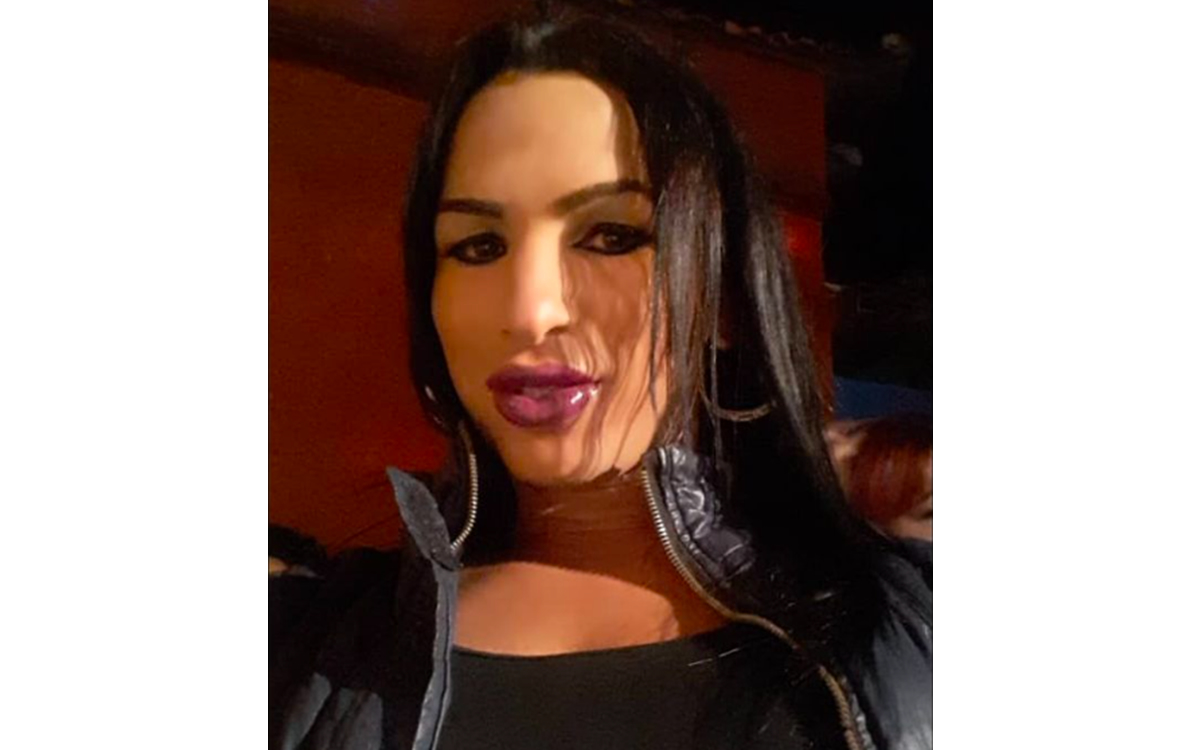
HAVANA — The daughter of former Cuban President Raúl Castro this week described the case of a Transgender woman who is serving a 14-year prison sentence after she participated in an anti-government protest in 2021 as “an oversized story full of fantasies.”
Mariela Castro, who directs Cuba’s National Center for Sexual Education, spoke about Brenda Díaz during an interview that Agencia EFE published on May 3.
Authorities arrested Díaz in Güira de Melena in Artemisa province on July 11, 2021.
The Güira de Melena protest was one of dozens against the Cuban government that took place across the country on that day.
A Havana court last year sentenced Díaz to 14 years in prison. Cuba’s highest court later upheld the sentence.
The State Department in a previous statement to the Washington Blade that called for Díaz’s release expressed concern over her “well-being” amid “reports that she is being held in a men’s prison and is not receiving appropriate medical treatment.”
Díaz’s mother has previously said her daughter, who lives with HIV, has access to antiretroviral drugs, but other medications are not always available. Díaz’s mother has also complained about the “very bad quality” of food in prison.
“Brenda is very well there,” Mariela Castro told Agencia EFE. “She does not know that she is a media figure that has been invented against Cuba.”
Mariela Castro said Díaz receives “very good food, better than her family has” in prison, and she is able to participate in sport activities and a library. Mariela Castro further described reports about Díaz and her case as “little gossips” and “a media show by the press and corporate agencies.”
“It is sad that the same lie to attack Cuba with this story continues to be reproduced,” said Mariela Castro.
Caribbean
Barbados High Court strikes down country’s sodomy law
Ruling ‘a pivotal moment for equality’ for all Barbadians
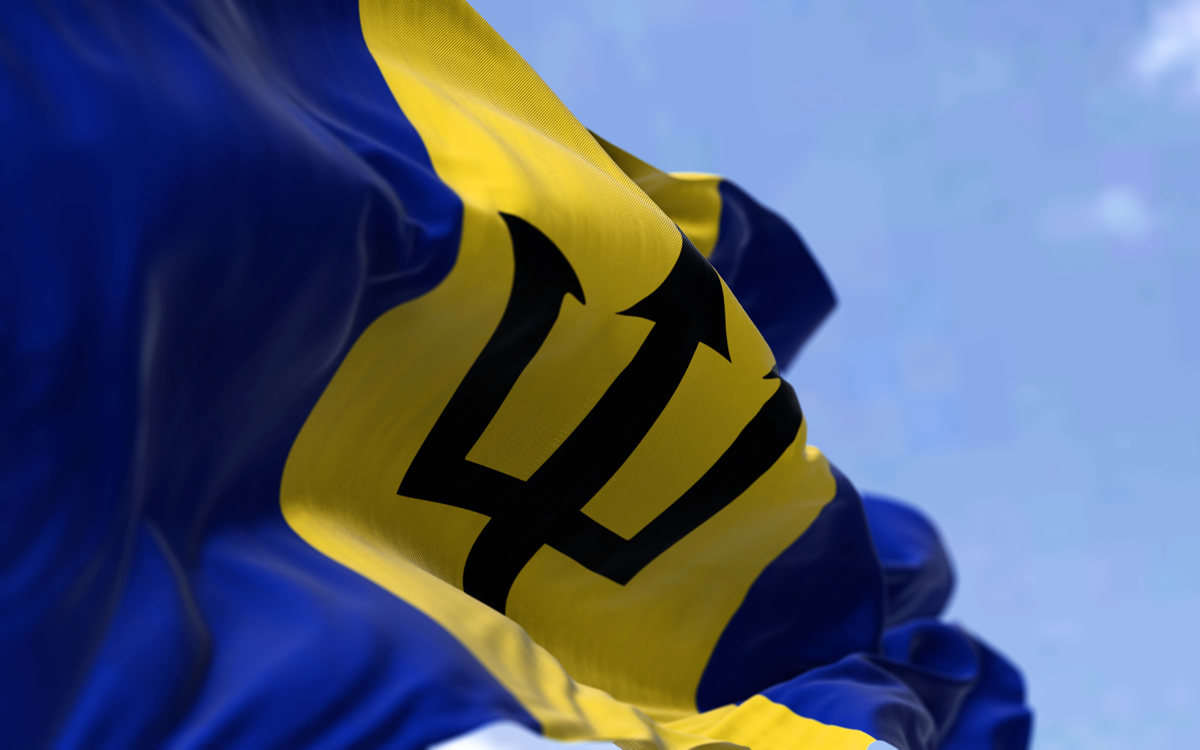
BRIDGETOWN, Barbados — The Barbados High Court on Monday struck down a colonial-era law that criminalized consensual same-sex sexual relations.
The ruling specifically struck down Sections 9 and 12 of the Barbados Sexual Offenses Act.
Men who were found guilty of engaging in consensual same-sex sexual relations under Section 9 could have faced up to life in prison. Men and women who were convicted of violating Section 12 could have faced up to 10 years in prison.
The London-based Human Rights Trust in a press release noted Equals, an LGBTQ+ and intersex rights group in Barbados, and the Eastern Caribbean Alliance for Diversity and Equality challenged the law on behalf of two local activists.
“Today’s ruling is one step, one action of many impacting the LGBTQ+ community of Barbados,” said one of the plaintiffs in the Human Rights Trust press release. “As it resonates with me, I already know there is more work to be done. We will continue on together.”
The other plaintiff in the press release said the ruling is “a pivotal moment for equality for all Barbadians and one more step in the journey towards more inclusivity for LGBT citizens.”
“This will definitely mean that I and my community can navigate life with just a little more ease and comfort, in the knowledge that Barbados has taken a step to understand us and respect us,” they said.
Judges earlier this year struck down colonial-era sodomy laws in St. Kitts and Nevis and Antigua and Barbuda.
The Belizean Court of Appeal in 2019 upheld a ruling that struck down the country’s sodomy law. A judge on the Trinidad and Tobago High Court in 2018 struck down its statute that criminalized consensual same-sex sexual relations.
The Inter-American Commission on Human Rights last year in a landmark decision said Jamaica must repeal its sodomy law. Then-British Prime Minister Theresa May in 2018 said she “deeply” regrets colonial-era criminalization laws the U.K. introduced.
Donnya Piggott, an activist from Barbados, is the co-founder of Pink Coconuts, an online platform for LGBTQ+ and intersex travelers. Piggott is also Open for Business’ Caribbean Campaign lead.
Piggott in a statement said the Barbados ruling is “a long time coming, and the advocacy journey has been arduous.”
“We’re thankful to all the advocates who worked hard on this,” said Piggott. “It’s beautiful to see Barbados’ step towards inclusion and we hope it signals to other Caribbean islands that our people only stand to benefit from decriminalization as well as other inclusive laws, and the economic opportunities it brings for the entire region.”
The Associated Press reported the Barbadian government has not said whether it will appeal the ruling.
-

 a&e features2 days ago
a&e features2 days agoMusical Mondays, a mainstay in WeHo nightlife, celebrates 16 years
-
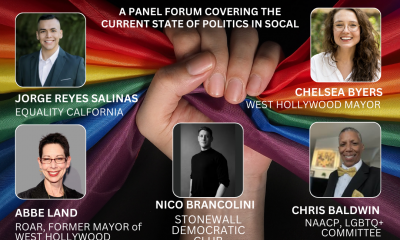
 Features5 days ago
Features5 days agoLos Angeles Blade kicks off Free Community Event Series with an informative political panel of government and advocacy group leaders
-

 Arts & Entertainment1 day ago
Arts & Entertainment1 day ago‘Bring it to Brunch’ returns to West Hollywood
-

 California16 hours ago
California16 hours agoSouth Park provides green space to a predominantly Latino community
-

 Myanmar2 days ago
Myanmar2 days agoLGBTQ+ advocacy group joins Myanmar earthquake relief effort
-

 a&e features2 days ago
a&e features2 days agoPeppermint thrives in the spotlight
-

 National12 hours ago
National12 hours agoLatest update in the case of wrongfully deported gay, Venezuelan make-up artist

